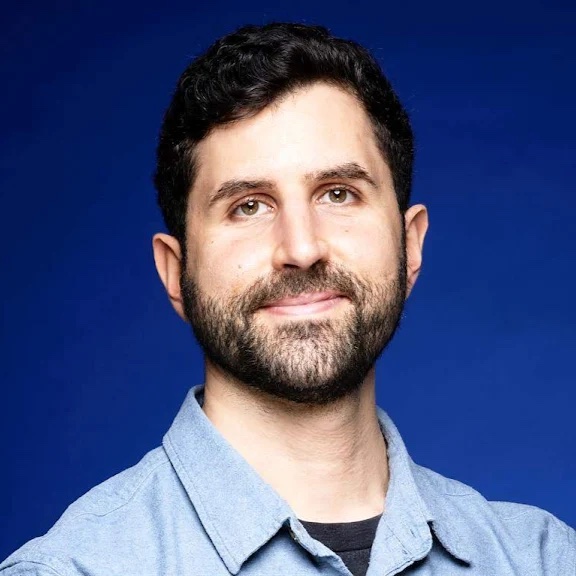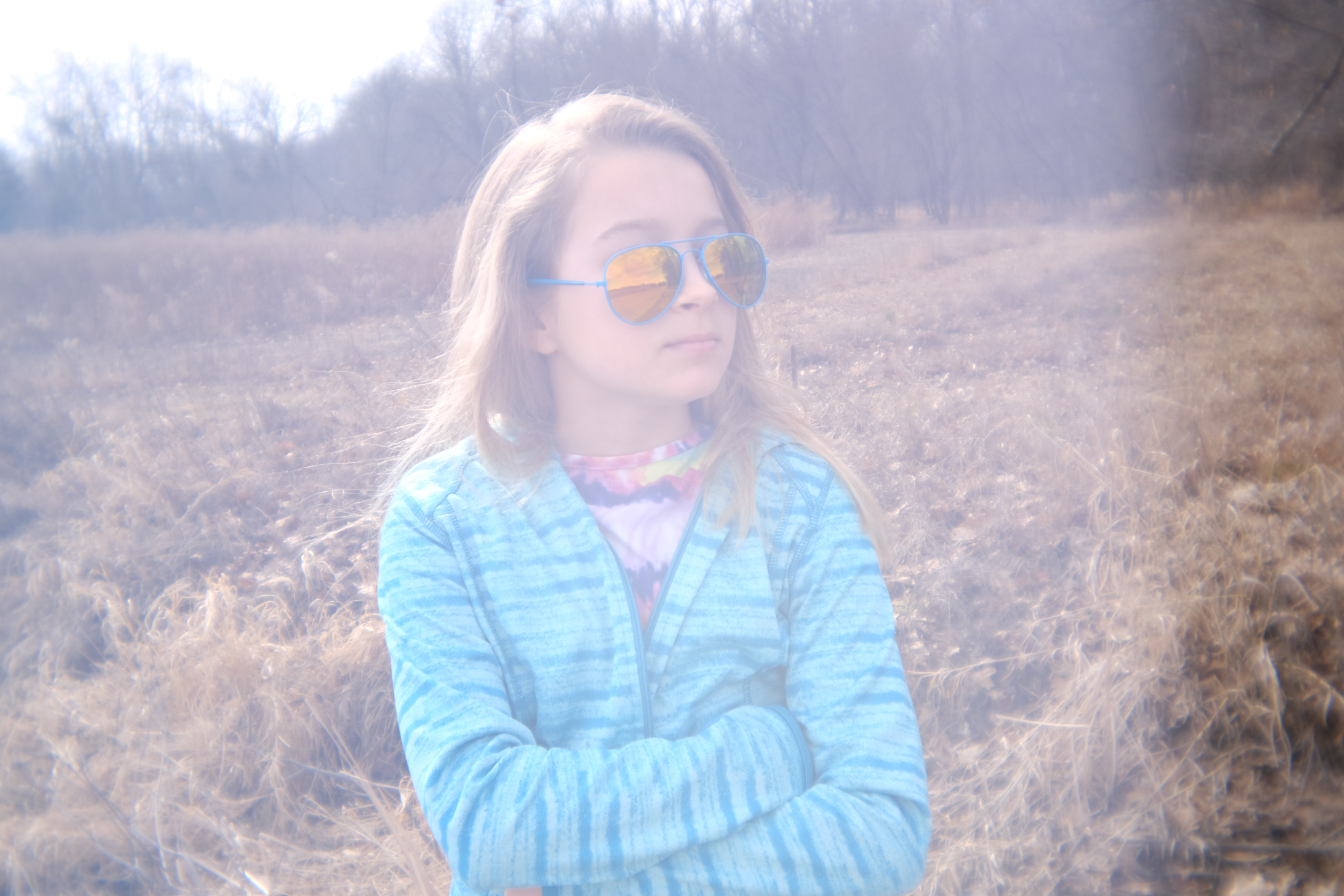What Annie Leibovitz taught me about photography
How three hours with Annie Leibovitz helped me hit the reset button on my relationship with photography
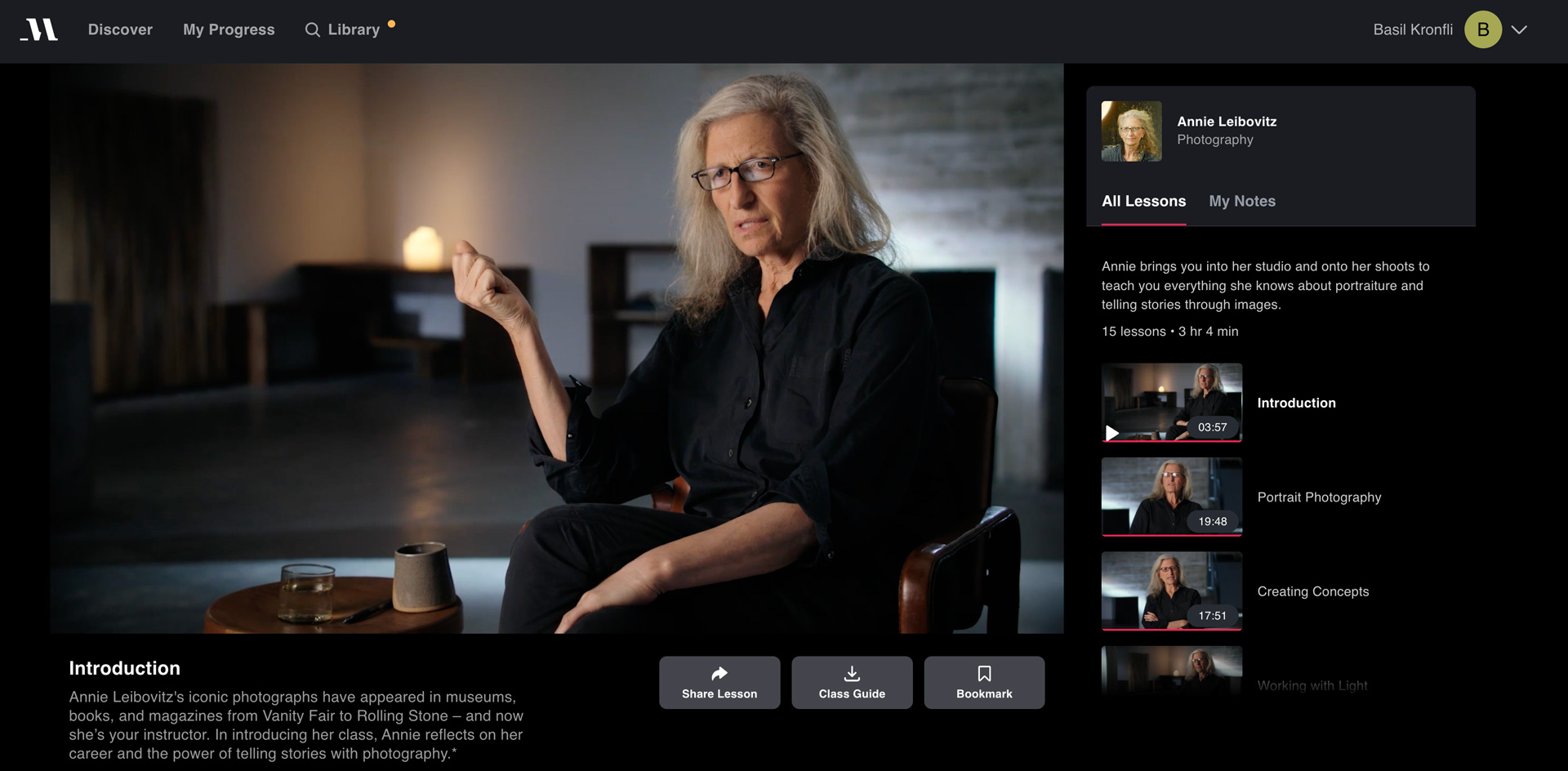
It’s not every day you get to sit in on a series of talks with world-renowned photographer, Annie Leibovitz, but today was that day for me. I was in Norwich, in the UK, for three days visiting my partner's family. After waking up before everyone else on the final morning there, I ventured into the city center, found an open coffee shop, took a seat, and my session with Leibowitz began.
Of course, Annie Leibovitz didn't turn up in the Caffè Nero opposite Norwich Market specifically to share lessons learned in a career spanning roughly 50 years with me. And she didn't recount iconic moments in history through her very particular lens, specifically for the local coffee drinkers. No; she showed up on my phone, and, later, on my tablet for a private screening courtesy of MasterClass.
The MasterClass app, which features over three hours of seminar-like videos from Leibovitz, as well as accompanying course materials, gave me a front-row seat to a series of lectures by the much-lauded photographer. And by the time the course was over (and the barista and I were on a first-name basis), I was challenged to reexamine my relationship with photography almost entirely.
MasterClass for photographers
The popular service, MasterClass, which can be accessed both online through a web browser and on the go through Android and iOS apps, doesn't just feature lectures by Leibovitz, or, indeed, photographers. It enjoys an incredibly comprehensive list of celebrity speakers, each sharing an instructional, structured recounting of their rise to prominence in lesson format.
From John Legend's insights into songwriting to Christina Aguilera's tips on singing, Samuel L. Jackson on acting to Melinda Gates on philanthropy – and plenty in-between, the service has clearly invested a huge amount in securing world-class talent.
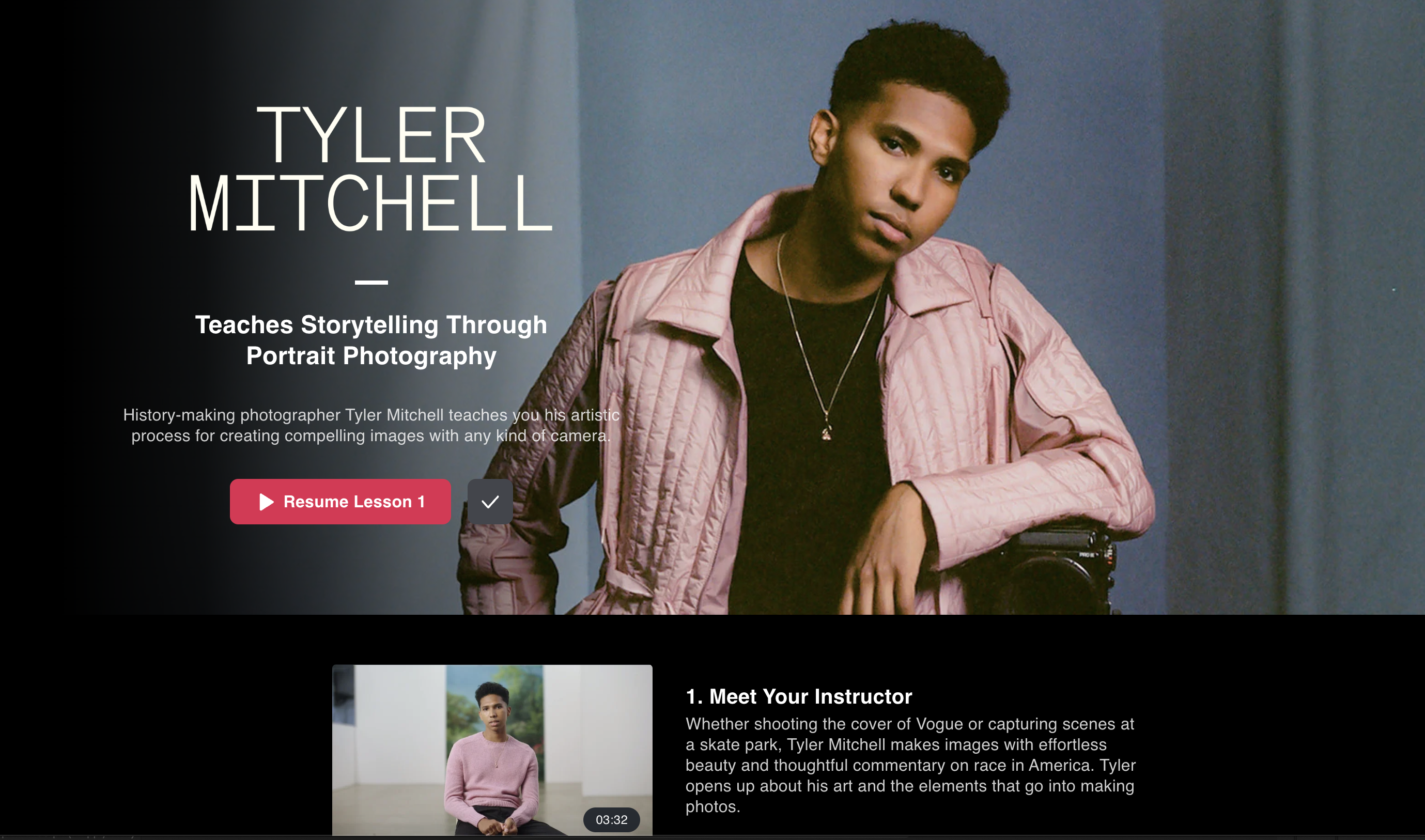
As for photography, in addition to Leibovitz's course, photographer Tyler Mitchell teaches storytelling through portrait photography, fashion photographer Petra Collins talks about capturing your vision, and pro mountain athlete and photographer Jimmy Chin teaches adventure capture.
There are peripherally interesting courses – Ron Howard, for example, teaches filmmaking, but for stills purists, it's those four courses that will need to justify the service's annual fee of £168 / $180 (online only), or £228 / $240 (including offline downloads). And Leibovitz is quite clearly the headline act.
Get the Digital Camera World Newsletter
The best camera deals, reviews, product advice, and unmissable photography news, direct to your inbox!
Back to Annie Leibovitz
There are three main aspects to Annie Leibovitz's masterclass that stood out for me: oration, education, and assignments. Without a doubt, the oration side of things was the most accessible.
Listening to Leibovitz place herself in the center of popular history with a focus on celebrity and conflict is truly fascinating. I doubt anyone would argue that her delivery is overtly charismatic, but that doesn't matter. The calm way she recounts participating in such iconic moments as photographing John Lennon and Yoko Ono shortly before Lennon's assassination, or Queen Elizabeth II ahead of her state visit to the US – Leibovitz's stories are undoubtedly captivating.
As enigmatic as Leibovitz is, her high-profile stories primarily drive an understanding of her legacy and authority on the subject of photography. They also remind anyone less familiar with her staying power just how enduring a force she is, but they didn't do much to teach me about photography per se. The same can't be said for her on-set sessions, though, or some lesser-known photoshoot stories.
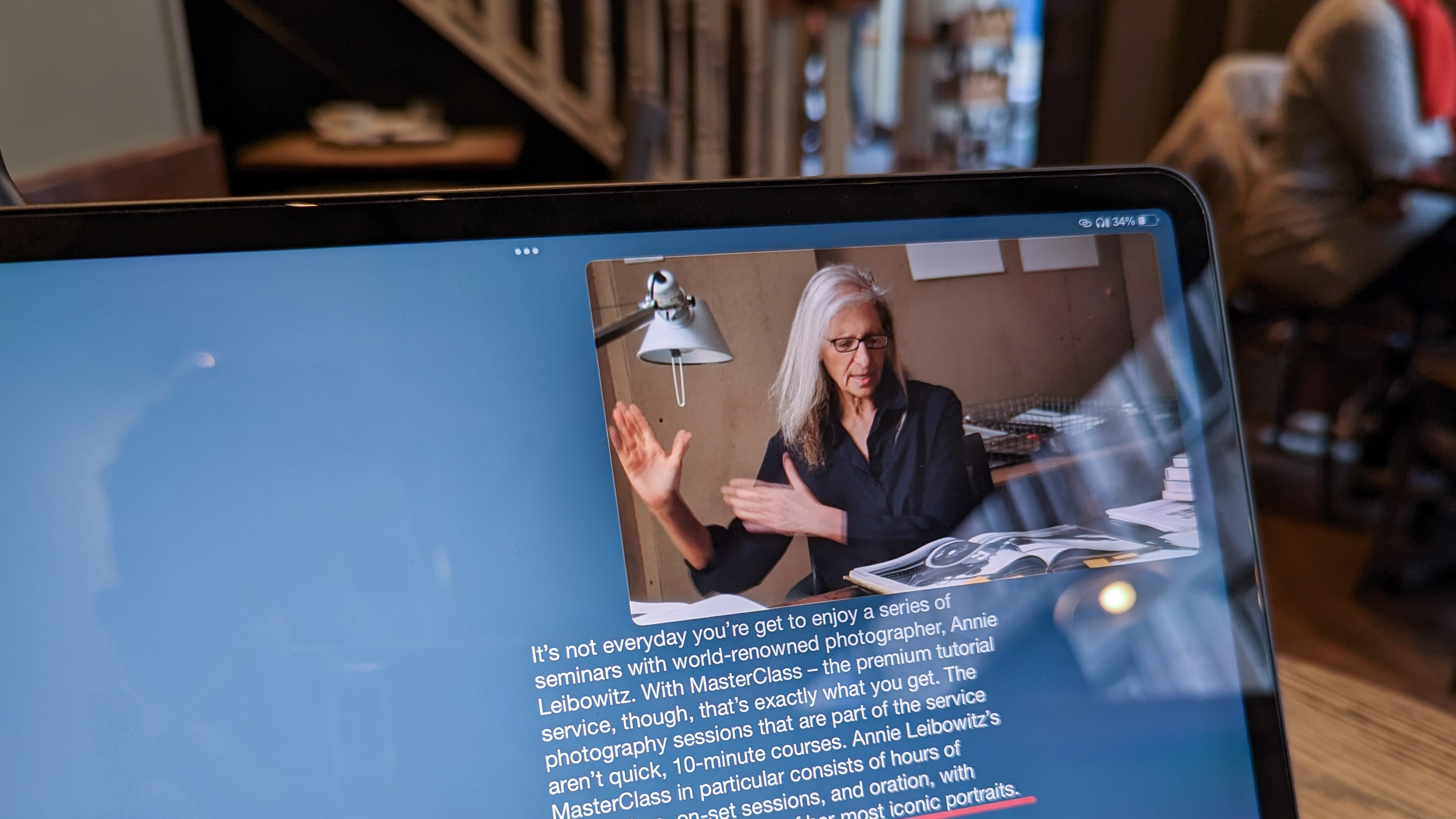
Lessons in photography
As someone who takes photos almost exclusively for work, the idea of luxuriating over a shot or even a shoot feels relatively alien to me these days. So Leibovitz's agonizing over seemingly small aspects of her process is as inspiring as it is indulgent – almost student-like in its effort to improve and iterate.
Leibovitz isn't bashful about her characteristic obsession with detail and getting the right shot. This comes through when she recalls starting from scratch on a number of shoots when they were well underway or even complete. Or on the set of a complex shoot with Andrew Garfield and Nathan Lane on a beach. And when in the editing booth, where Leibovitz directs an ever-patient photo editor to tune elements to look as close to natural light as possible.
By the end of the MasterClass, in addition to being familiar with her body of work, you'll understand some characteristics that shape Leibovitz's stylistic fingerprint conceptually, going into a shoot and in the editing suite.
Leibovitz's reverence for storytelling through photography, and natural, overcast lighting, for example, can't be overstated. She also refrains from getting bogged down by the technology of cameras today and isn't embarrassed by the fact she iterates ideas and doesn't always get things right the first time. The whole series really takes some patience, given its slow pace, but is nevertheless humbling, inspiring, and insightful.
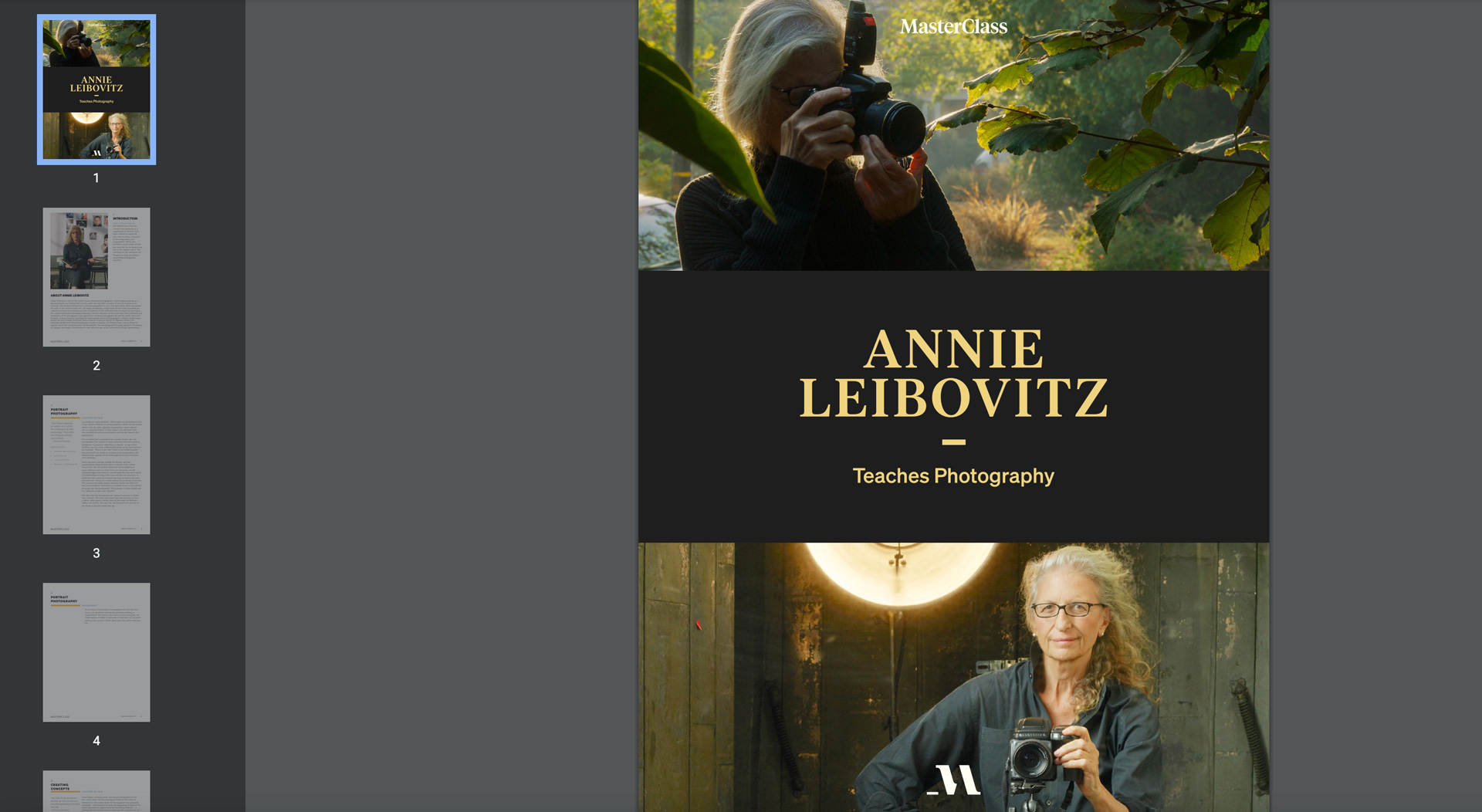
It's difficult to see Leibovitz's MasterClass videos as a standalone robust course in photography. The lessons phase between being on-set, recounting experiences, and peppering everything with a fair bit of philosophical conjecture. This isn't the stuff of institutional learning.
Married with the class workbook – a downloadable PDF with a more digestible, structured approach than the videos, everything comes together in a course format that feels easy to follow, though. Each section is rounded off with assignments, and despite not giving you a grade at the end of your time with lecturer Leibovitz, the MasterClass goes some way to lay down a foundation for critical thinking in photography.
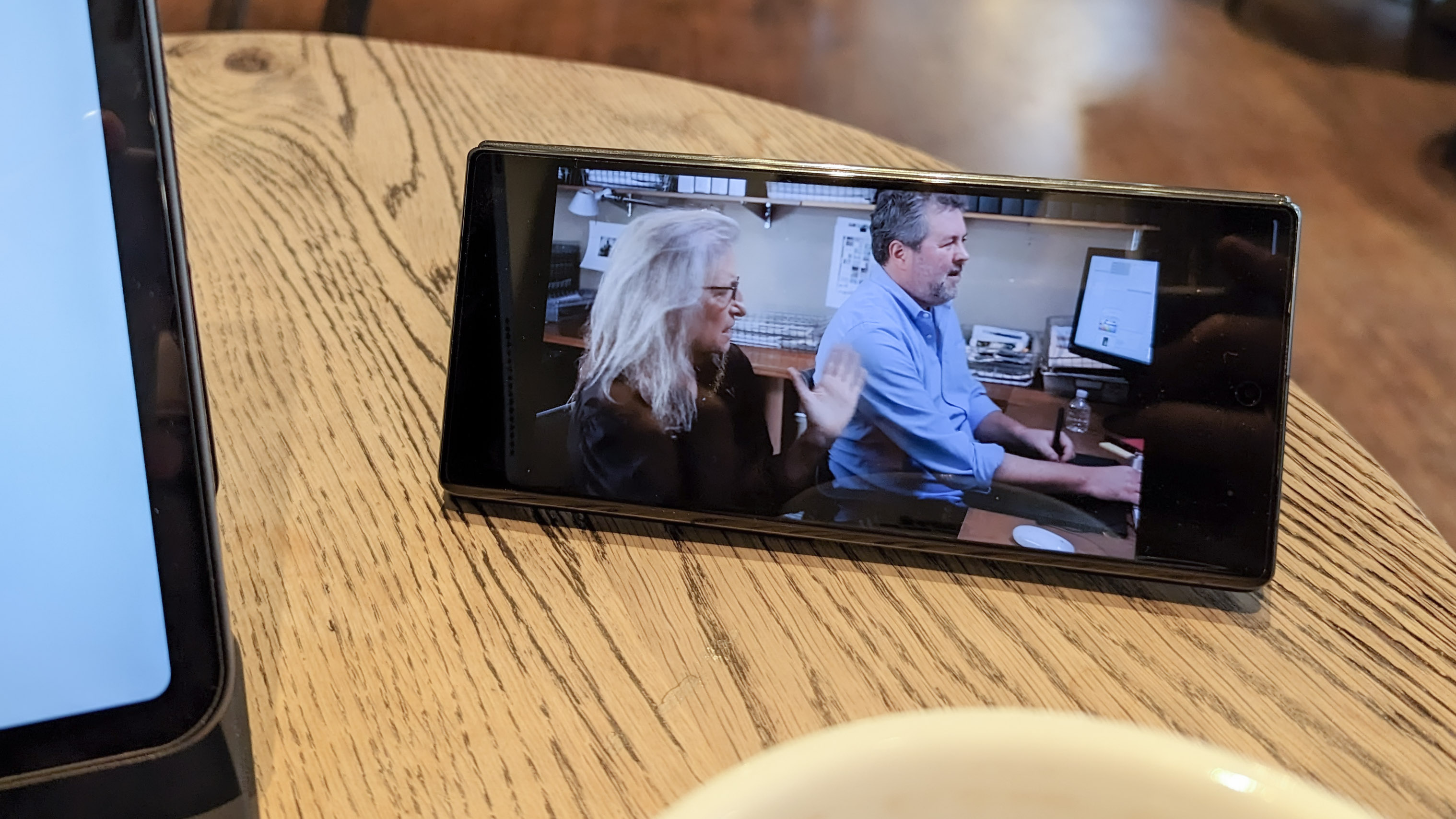
Annie Leibovitz's MasterClass and me
Reflecting on my specific situation, the reason Leibovitz's course challenges me so much is that it reminds me of the ways I've fallen out of love with photography.
I've been lucky enough to work as a journalist for over a decade, but that has meant photographing consumable content for social media, capturing tens of thousands of photos for product reviews, focusing on tech specs above all else, and feeding the content machine that is the internet. There's clearly photography fatigue at play, and I'm guessing I'm not the only one.
After watching the MasterClass course, though, it's clear that I, and possibly many other photographers, could take a leaf out of Leibovitz's book – be a bit less cynical, a bit more indulgent, and not apologize for focusing on the details.
More to the point, the course is a wonderful reminder to really enjoy photography and lose yourself in its process. After all, it's clear that even after 50 years in the game, Annie Leibovitz certainly appears to.
Best online photography courses
Best coffee table photography books
Best books on portrait photography
Basil Kronfli is a freelance technology journalist, consultant, and content creator. He trained in graphic design and started his career at Canon Europe before moving into journalism. Basil is also experienced in video production, independently running the YouTube channel TechEdit, and during his time at Future, he worked alongside the Digital Camera World team as a senior video producer.
